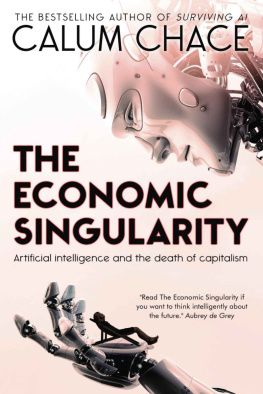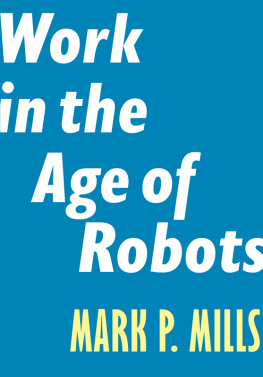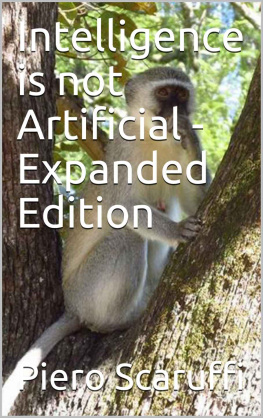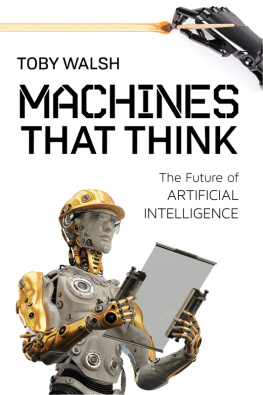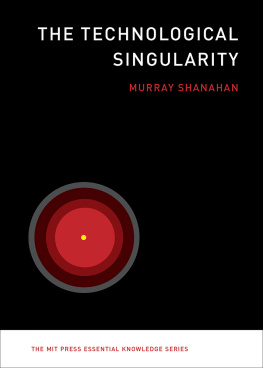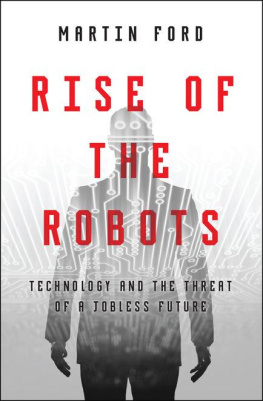The Economic Singularity
Artificial intelligence and the death of capitalism
Calum Chace
Comments on The Economic Singularity
A problem that all techno-pioneers face, when selling their vision of the future to others (I use quotes because I in no way refer to anything monetary), is to get their audience to focus on the new development in an appropriate context. Above all, this means striking a balance between communicating the significance of the proposed development and setting it within the universe of other developments that are likely to have occurred in the meantime.
The advance of automation, described with great care and accuracy in this book, will almost certainly constitute the substrate within which all other technological developments be they biomedical, environmental or something else entirely will occur, and thus within which they should be discussed as regards their value to humanity.
Read "The Economic Singularity" if you want to think intelligently about the future.
Aubrey de Grey CSO of SENS Research Foundation; former AI researcher
Following his insightful foray into the burgeoning AI revolution and associated existential risks, Calum focuses his attention on a nearer term challenge the likelihood that intelligent machines will render much of humanity unemployable in the foreseeable future. He explores the arguments for and against this assertion and provides a measured response, acknowledging the risks associated with such a radical shift in our self identity but also outlining the potential significant benefits. Once again he proves a reliable guide through this complex yet fascinating topic.
Ben Medlock, co-founder of Swiftkey, the best-selling app on Android
"It's important that this book and others like it are written. Not because the future will necessarily happen exactly in the way described, but because it's important to be prepared if it does. If automation compels us to shift to a different economic organisation, we better start laying the foundations for the shift right now."
Dr Stuart Armstrong, James Martin Research Fellow at the Future of Humanity Institute, Oxford University
"Chace does a good job of answering the question whether robots will take our jobs. What worries me more though, a bit further down the road, once these robots have become massively intelligent, is whether they may take our lives. Chace covered this issue thoroughly in his previous book, "Surviving AI".
Prof. Dr. Hugo de Garis author of "The Artilect War", former director of the Artificial Brain Lab, Xiamen University, China
The jobs of the future dont exist today and the jobs of today will not exist in the future. Technological Singularity will change everything, but its first manifestation will come in the domain of economics, most likely in the shape of technological unemployment. Calum Chaces The Economic Singularity does a great job of introducing readers of all levels to the future we are about to face. Chace explains what might happen and what we can do to mitigate some of the negative consequences of machine takeover. The book covers unconditional basic income, virtual environments, and alternative types of economies among other things. Highly recommended.
Dr. Roman V. Yampolskiy, Professor of Computer Engineering and Computer Science, Director of Cybersecurity lab, Author of Artificial Superintelligence: a Futuristic Approach
Unprecedented productivity gains and unlimited leisurewhat could possibly go wrong? Everything, says Calum Chace, if we dont evolve a social system suited to the inevitable world of connected intelligent systems.
Its a failure of imagination to debate whether there will be jobs for humans in the automated world, Chace argues - we must look farther and ask how we will organize society when labor is not necessary to provide for the necessities of life. Find an answer, and life improves for all; without one, society collapses. Read this book to understand how social and technological forces will conspire to change the worldand the problems we need to solve to achieve the promise of the Economic Singularity.
Christopher Meyer, author of Blur, Future Wealth, and Standing on the Sun
It is interesting to listen to our own language. We say things such as "to earn a living", implying that you need to earn the privilege to be alive and to live a moderately enjoyable life. This may be looked upon as strangely in the future as we would now look back and say about slaves that they had to "earn their freedom".
Calum Chace hits the nail on the head in chapter 3 of this extremely timely book. It is probably true that there will be new types of 'jobs' in whatever niches remain best explored by humans in the near future, but we should also consider an entirely different goal for the future.
Who was it in ages past who contributed those things we most remember, over time, as being of great value? It was they who contributed to the arts, the sciences and invention. But who were those people? Throughout the majority of history, these were mainly the people who either did not have to have a 'job' (because they were part of an aristocracy that had a different role to play while being supported by property and subjects), as well as the artists, artisans, philosophers or scientists who were directly supported by those patrons and therefore did not have the need to take a typical 'job'.
It is not the typical jobs that are celebrated as the best of humanity, and therefore it probably should not be our aim to find yet more categories of such jobs. Instead, wouldn't it be much better if a greater proportion of humanity could find the means to engage in preferred and culture-creating activity? With this in mind, it seems to me that it should be our aim to get rid of the need for jobs and employment just for the purpose of survival.
Our strategies for the future should be not about finding new salary jobs, but rather about removing the need for them, and about setting up a better and more advanced social structure. This is where looking at the challenges involved and the path to a successful alternative, as Chace does in chapter 5, is essential.
Where ideas such as a universal basic income (UBI) are concerned, it is useful to keep in mind that the world is not the US. Even if there is some initial antipathy in the US, because of associations between UBI and what might naively be labeled as 'socialist' thinking, the US will not wish to be left behind if other nations successfully implement the change. The time to dive deeply into the many issues raise in this book, to start a wider conversation about those issues, and to look creatively for the most well-balanced solutions and outcomes, is now.
Randal Koene founder of carboncopies.org
"The Economic Singularity is fascinating. Calum Chace brilliantly explores the enormous opportunities, and risks, presented to humanity by the rapid advance of technology, and especially artificial intelligence. I couldn't put this book down."
Ben Goldsmith Menhaden Capital
In his fast-paced new book, Calum Chace explains the challenge facing humanity: to navigate through a dramatic transition which he christens the economic singularity. The culmination of an accelerating wave of automation by robots and AI, this transition threatens to do more than displace employees from the workforce. Unexpectedly, it threatens the end of capitalism itself, and potentially the fracturing of the human species.
Chace compellingly sets out a range of options, before sharing his assessment of the most credible and desirable outcomes, so that we can reach a shared protopia rather than a nightmarish Brave New World (or worse).
David Wood chairman, London Futurists
Calum Chace is a best-selling author of fiction and non-fiction books, focusing on the subject of artificial intelligence. His books include Surviving AI, a non-fiction book about the promise and the challenges of AI, and Pandora's Brain, a techno-thriller about the first superintelligence.
Next page
